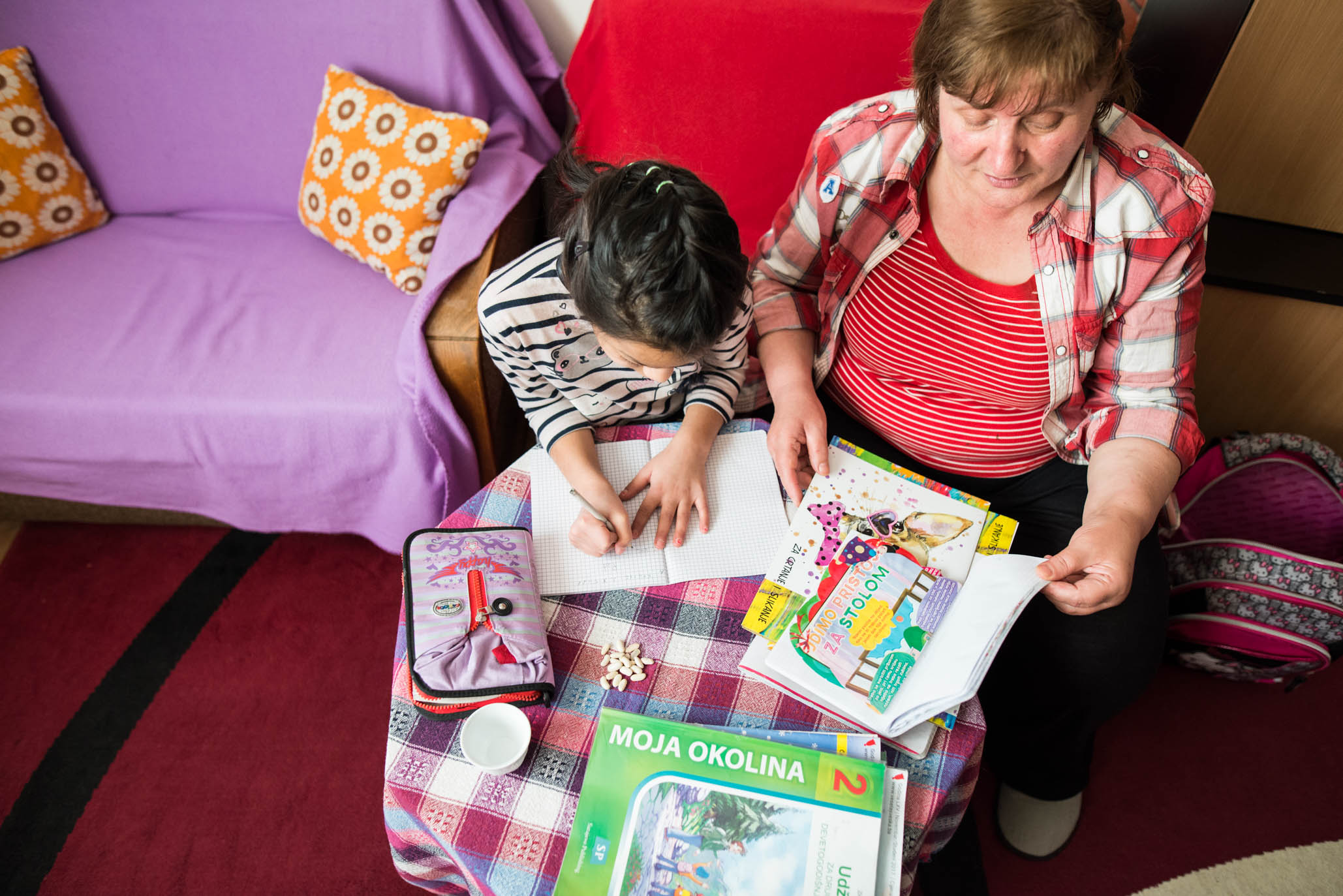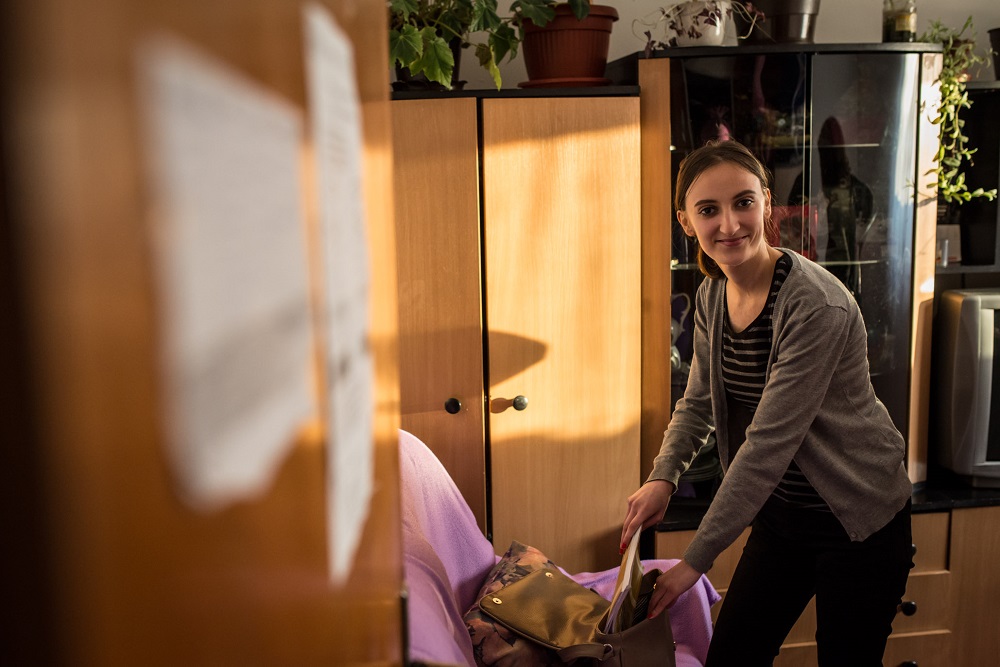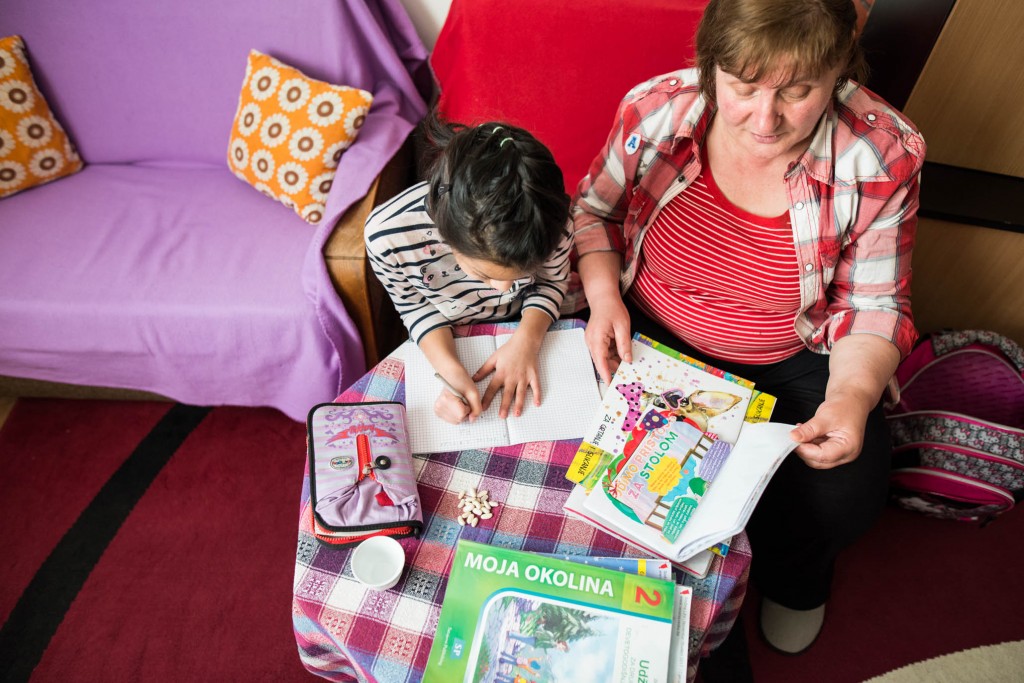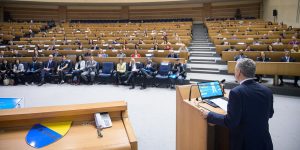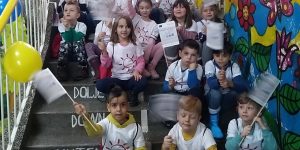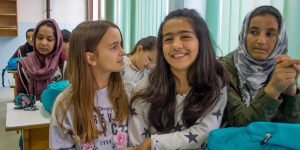In the part of Sarajevo where the sun shines from the moment it rises until it sets lives Vidosava Matuh or „auntie“ Vida, as she has been called by as many as twenty children without parental care. She raised them as her own two children, making sure that, as long as they are under her roof, they won’t lack anything. Especially not love.
She was chosen by the Social Center of Sarajevo Canton, the Ministry for Social Work and Displaced Persons, and the Association of Foster Parents of KS, “Perspektiva”, for the best foster parent in Sarajevo Canton for 2017. Support for foster care is one of the essential components of “Support to transformation of childcare institutions and prevention of separation of families” project, which is financed by the European Union and implemented by UNICEF B&H with its partners.
„Auntie“ Vida became a foster mother in 1987, only a month and a half after she gave birth to her first child. At the time, she welcomed two boys who came from the central part of the country and who attended the nearby Center for Aural and Speech Rehabilitation. With a smile on her face, she recalls taking her son to the speech therapist three years later, since he used speech less and sign language more.
The boys spent the entirety of war at Vida’s house, and in 1992 Vida gave birth to her daughter. It wasn’t easy spending four years hiding in a basement, without electricity, water, lacking food and other necessities, and at the same time fearing for the lives of four children.
However, the war ended with both of them well and alive, and after them came two girls. Both of them are grown women now; one of them has her own family, and the other one, 19-year-old Dragana, still lives there. She is a biology student at the Faculty of Natural Sciences and Mathematics in Sarajevo. With tears in her eyes she watches Vida who recalls the circumstances in which they first met each other.
– The little one stayed in the hospital with her sick mother for a long time. Her father previously died. She was only ten, and she had no relatives. It was too sad, says Vida.
Everything is different now.
– When I arrived at this house, I was falling behind in school, but „auntie“ Vida was persistent and patient, helping me to get through it. Her love and affection are unique. She is, in fact, my mother. Her children are my brother and sister, a family that I wouldn’t have otherwise, says Dragana.
Everything in Vida’s life is dedicated to the children, to their needs and responsibilities. She admits that after her husband’s death and numerous partings with children she went through a period when she wanted to give up. However, a call from the Social Centre – with an offer for her to foster a three-year-old girl – changed her decision.
– That child, so dear and charming, she brought me back to life. In September of last year, prior to her seventh birthday, she was adopted by wonderful, kind and educated people. I prepared her very well for our farewell and she left with a smile on her face. At home we still ache for her, but I am happy she found home and parents. As long as I am alive she and all other children I took care of are welcome here, says Vida.
Since October of 2017, Vida has been a foster mother to a eight-year-old girl, who arrived from the Home for Children without Parental Care Bjelave. For the purposes of this text we will refer to her as Lana. She goes to the second grade of primary school.
– It takes time for children who grew in institutional care to adapt to life in a family. They are not used to having something that is only theirs. They never saw how a lunch is being prepared, they never went to visit someone, they never went to a park, to countryside, they never learned how to ice skate, never went shopping…Lana enjoys these things, she constantly asks me whether I need something from the store. No matter how hard they tried, employees at the Home cannot devote their attention to every child one-on-one. I can and I have to. This is what family is for. Institutions may have more money than an average family, but I have the time to embrace that child, I can always stop for a bit for them to confide in me, to share their sadness, joy and wishes with me, and together we will try and make their dreams come true. Who knows whether we will succeed, but we will try, stresses Vida.
Lana looks at her and smiles. She says she likes going to school, drawing and solving math problems. She is happy that „auntie“ Vida will come to the parent-teacher meetings, and she “boasted” about this to her friends. This is a very important thing to her.
With the help of Vida, she learned how to read and write. Since she arrived, they went through at least three notebooks. She brought all of them to the table. She enjoys the compliments she has recieved for improvements in her handwriting. Vida is also proud.
– She is a diligent and a smart girl who needs love, affection and support in order to achieve better results. I want her to use all her capacities so that one day she can become a useful member of this society. This is the purpose of foster care, which I would recommend for everyone who has enough affection and time to dedicate to children, stresses Vida, advising readers who wish to find out how to become a foster parent to look for information at the nearest Social Center.

